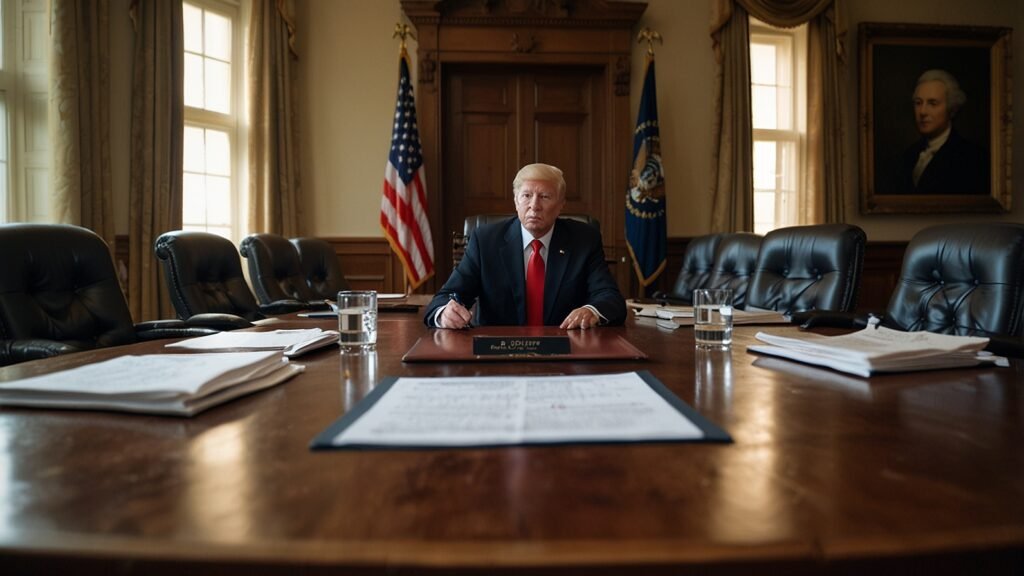Governmental issues
Governmental issues, got from the Greek word “politika” signifying “undertakings of the urban communities,” alludes to the exercises related with the administration of a nation or region.
It includes going with choices that apply to individuals from a gathering, impacting strategies, and the dissemination of assets and power.
From a more extensive perspective, governmental issues is about the manners in which individuals sort out themselves to by and large decide, resolve clashes, and make rules and regulations.
The Significance of Legislative issues In the public arena

Legislative issues is vital as it shapes the administration and construction of social orders.
It influences each part of life, from regulations and guidelines to individual opportunities and cultural standards.
Understanding governmental issues empowers residents to go with informed choices and take part actually in the popularity based process.
The political scene impacts monetary strategies, social issues, and worldwide relations, making it fundamental for the solidness and improvement of any country.
Types and Classes
Political Frameworks
A vote based system
A framework where power is vested in individuals, either straightforwardly or through chosen delegates. Key highlights incorporate free and fair decisions, security of common liberties, and law and order.
In a popularity based framework, the public authority is responsible to individuals, and there is an unmistakable partition of abilities among the chief, regulative, and legal branches.
Tyranny
A framework described areas of strength for by power and restricted political opportunities. Individual opportunities are frequently limited, and political resistance is commonly stifled.
Tyrant systems might keep up with control through promulgation, reconnaissance, and the utilization of power.
Government
A type of government where a solitary individual rules, normally a ruler or sovereign. Governments can be outright, where the ruler has complete power, or protected, where their power is restricted by regulation.
In an established government, the ruler frequently serves an emblematic job, with genuine political power resting in chosen bodies.
Socialism
A framework where all property is freely possessed, and every individual works and is paid by their capacities and requirements. It holds back nothing society and the annulment of private property.
Socialism tries to wipe out disparity by circulating assets in view of need as opposed to riches or status.
Political Belief systems

Radicalism
Advocates for individual opportunities, a majority rules system, and the security of common freedoms.
It upholds an unregulated economy and the partition of chapel and state. Radicalism underlines the significance of individual freedom, social advancement, and administrative straightforwardness.
Traditionalism
Stresses custom, social soundness, and keeping up with laid out foundations.
It frequently upholds a market economy, with an accentuation on moral obligation and restricted government mediation. Moderates esteem the conservation of social legacy, virtues, and public power.
Communism
Advocates for social possession and vote based control of the method for creation. It looks to lessen imbalance and give social government assistance programs.
Communists contend for a more impartial circulation of riches and assets, expecting to make a general public that guarantees essential requirements for all residents.
Libertarianism
Focuses on individual freedom and looks to limit government mediation in all parts of life, including monetary and individual matters.
Freedom advocates champion unregulated economy private enterprise, individual independence, and a restricted state, underlining the significance of willful collaboration and moral obligation.
Political Speculations
Traditional Political Speculations
These speculations, beginning from old savants like Plato and Aristotle, center around the ideal state and administration structures. They accentuate the job of ethicalness and equity in legislative issues.
Old style speculations frequently investigate the idea of political power, the job of the resident, and the best types of government.
Present day Political Speculations
Created during and after the Illumination, these speculations incorporate common agreement hypothesis, communism, and woman’s rights.
They address issues of force, administration, and individual freedoms in contemporary social orders.
Present day political hypotheses fundamentally dissect the designs of force, monetary disparities, and civil rights, giving structures to understanding and tending to contemporary political difficulties.
Political Foundations
The Presidential Branch
Answerable for carrying out and upholding regulations. It incorporates the president or state head and their selected bureau individuals.
The presidential branch deals with the organization of government, administers public protection, and behaviors international strategy.
The Regulatory Branch
Depended with making guidelines. It generally includes a parliament or congress, which may be bicameral or unicameral.
Gatherings exchange, change, and choice on proposed guidelines, tending to the interests of the electorate.
The Legal Branch
Deciphers regulations and guarantees they are applied reasonably.
It incorporates different degrees of courts, from neighborhood to high courts.
The legal executive safeguards protected freedoms, settle legitimate questions, and guarantees that regulations are steady with the constitution.
Ideological groups
Associations that try to impact government strategy by getting their individuals chosen for public office.
They address explicit philosophies and strategy inclinations.
Ideological groups prepare citizens, foster strategy stages, and assume a urgent part in the constituent cycle.
Political Cycles
Decisions and Casting a ballot
Systems through which residents pick their agents. Decisions can be nearby, territorial, or public and include different frameworks like first-past-the-post or corresponding portrayal.
Free and fair races are key to majority rule administration, guaranteeing that pioneers are responsible to individuals.
Regulation and Lawmaking
The most common way of making regulations.
It ordinarily includes different stages, including proposition, discussion, revision, and endorsement by the regulative body.
Successful lawmaking requires discussion, split the difference, and adherence to procedural guidelines.
Public Arrangement Making
The interaction by which states settle on approaches to resolve cultural issues. It includes recognizing issues, forming arrangements, carrying out them, and assessing their viability.
Public approach means to work on the personal satisfaction for residents by tending to financial, social, and natural difficulties.
Global Governmental issues
Worldwide Relations Speculations
Structures for figuring out communications between states. Significant hypotheses incorporate authenticity, radicalism, and constructivism, each offering alternate points of view on power, participation, and personality in worldwide legislative issues.
These hypotheses assist with making sense of the way of behaving of states, the reasons for struggle, and the possibilities for collaboration.
Worldwide Administration

The arrangement of rules, foundations, and practices that intend to oversee worldwide issues. It incorporates worldwide associations like the Assembled Countries and arrangements like the Paris Environment Accord.
Worldwide administration looks to address transnational difficulties, for example, environmental change, basic freedoms, and monetary turn of events.
Tact
The act of arranging and overseeing relations between states.
Representatives work to determine clashes, advance exchange, and encourage participation. Powerful strategy requires capable exchange, social comprehension, and vital reasoning.
Global Associations
Substances like the Unified Countries, NATO, and the World Exchange Association that work with participation and oversee worldwide issues.
They assume significant parts in peacekeeping, exchange guideline, and helpful guide.
Worldwide associations give stages to exchange, coordination, and aggregate activity.
Political Economy
Private enterprise
A monetary framework described by confidential responsibility for method for creation and the production of labor and products for benefit. It underlines market contest and shopper decision.
Free enterprise drives development, financial development, and abundance creation, yet in addition raises issues of imbalance and market disappointments.
Communism
A financial framework where the method for creation are claimed and constrained by the state or public.
It intends to convey abundance all the more similarly and offer public types of assistance like medical services and training.
Communism tries to offset financial effectiveness with social value, tending to the requirements of all citizenry.
Blended Economies
Joins components of private enterprise and communism. The public authority and confidential area both assume critical parts in the economy, offsetting proficiency with social government assistance.
Blended economies endeavor to bridle the advantages of market contest while guaranteeing public labor and products are available to all.
Worldwide Exchange and Financial matters
The trading of labor and products across worldwide lines. It is impacted in terms of professional career arrangements, levies, and worldwide monetary approaches.
Worldwide exchange encourages monetary association, social trade, and financial development, yet in addition makes difficulties connected with exchange uneven characters and monetary differences.
Political Cooperation
Resident Commitment
The association of residents in political cycles. This incorporates casting a ballot, going to town gatherings, and taking part in community associations.
Dynamic resident commitment is indispensable for a sound majority rules government, it are heard and addressed to guarantee that different voices.
Fights and Developments
Types of political investment where gatherings advocate for change. Outstanding developments incorporate the social liberties development, women’s activist developments, and ecological activism.
Fights and developments feature cultural issues, assemble popular assessment, and can prompt critical arrangement changes.
Political Activism
Endeavors to advance, hinder, direct, or mediate in friendly, political, monetary, or natural change. Activists utilize different strategies, from grassroots crusading to advanced support.
Political activism brings issues to light, forms alliances, and drives social and political change.
Political Correspondence
Media and Governmental issues
The connection among media and political cycles. Media can impact popular assessment, set plans, and give a stage to political talk.
The ascent of advanced media has changed political correspondence, empowering ongoing data dispersal and more extensive public commitment.
Political Missions
Coordinated endeavors to impact dynamic inside a particular gathering. Crusades incorporate systems for gathering pledges, elector effort, and media commitment.
Fruitful political missions successfully convey their messages, assemble allies, and address the worries of the electorate.
Misleading publicity
Data, particularly one-sided or misdirecting, used to advance a political reason or perspective. It intends to shape discernments and impact general assessment.
Promulgation methods can control data, feelings, and images to accomplish political objectives.
Political Difficulties
Debasement
The maltreatment of force for individual addition. It subverts trust in political foundations and hampers advancement.
Defilement can take many structures, including pay off, misappropriation, and nepotism, and it presents huge difficulties to administration and monetary turn of events.
Political Savagery
Demonstrations of savagery inspired by political objectives. It incorporates psychological warfare, nationwide conflicts, and political deaths. Political savagery disturbs social request, causes human torment, and blocks advancement.
Psychological oppression
The utilization of viciousness and terrorizing, particularly against regular citizens, to accomplish political points. It presents critical difficulties to public and worldwide security.
Battling psychological oppression requires worldwide participation, insight sharing, and tending to the underlying drivers of radicalization.
End
Rundown of Central issues
Governmental issues is a complex field that incorporates different frameworks, belief systems, organizations, and cycles.
It shapes the administration of social orders, impacts worldwide relations, and effects each part of life. Understanding legislative issues is vital for educated and dynamic citizenship.
Source of inspiration
Take part in political cycles, remain informed, and take part in metro exercises.
Thusly, you add to the wellbeing and energy of a majority rules system, guaranteeing that your voice is heard and your inclinations are addressed.
Further Training
For those keen on extending their comprehension, think about concentrating on political theory, going to public talks, and following respectable news sources.
Consistent learning and commitment are vital to exploring and impacting the mind boggling universe of legislative issues.
FAQs(Frequently Asked Question)
1. What is the meaning of grasping political frameworks?
Understanding political frameworks is pivotal in light of the fact that it assists residents with fathoming how their nation is administered, the dissemination of force, and the components for direction.
This information empowers people to partake actually in just cycles, consider pioneers responsible, and advocate for their freedoms.
2. How do political philosophies impact government approaches?
Political belief systems give structures to deciphering the world and guide policymakers in forming regulations and guidelines.
For example, an administration with a liberal philosophy could focus on individual opportunities and market-driven strategies, while a communist government could zero in on decreasing imbalance through friendly government assistance projects and public proprietorship.
3. What are the fundamental distinctions among a majority rule government and tyranny?
The essential contrast among a vote based system and tyranny lies in the circulation and exercise of force. In a majority rule government, power is gotten from individuals, who choose delegates through free and fair races.
Popular governments focus on basic freedoms, law and order, and responsibility.
Tyranny, then again, gathers power in the possession of a solitary ruler or a little gathering, frequently restricting political opportunities, smothering contradiction, and utilizing power to keep up with control.
4. For what reason are ideological groups significant in a majority rule framework?
Ideological groups are fundamental in a majority rule framework since they sort out and prepare citizens, give stages to strategy conversation, and proposition decisions to the electorate.
They assist with organizing political discussion, propose answers for cultural issues, and guarantee that different perspectives are addressed in government.
5. How does worldwide administration address global difficulties?
Worldwide administration includes participation among states, global associations, and non-legislative elements to oversee worldwide issues that rise above public boundaries.
It tends to difficulties, for example, environmental change, basic freedoms, and financial improvement by making systems for joint effort, setting worldwide guidelines, and working with aggregate activity.
6. Which job do fights and developments play in legislative issues?
Fights and developments assume a pivotal part in governmental issues by causing to notice cultural issues, preparing popular assessment, and upholding for change.
They can impact strategy choices, bring issues to light about treacheries, and drive social and political changes.
Verifiable models incorporate the social equality development and the natural development.
7. How does the media impact political cycles?
The media impacts political cycles by molding general assessment, setting the plan for political discussion, and giving a stage to political talk.
It goes about as a guard dog, considering pioneers responsible, and can prepare residents by illuminating them about significant issues.
Nonetheless, media can likewise spread falsehood and be utilized for publicity.
8. What are the difficulties of battling debasement in governmental issues?
Battling defilement in governmental issues includes resolving complex issues like absence of straightforwardness, frail lawful systems, and dug in power structures.
Viable enemy of defilement measures areas of strength for require, law and order, public responsibility, and dynamic common society support. Worldwide collaboration and backing from multilateral associations are additionally crucial.
9. How might residents participate in political cycles?
Residents can participate in political cycles by casting a ballot in decisions, partaking in open conferences, joining city associations, going to municipal events, and remaining informed about policy centered issues.
Dynamic commitment guarantees that residents’ voices are heard and that they can impact arrangements and consider pioneers responsible.
10. What are the advantages and difficulties of worldwide exchange?
Worldwide exchange offers various advantages, including financial development, expanded shopper decision, and admittance to new business sectors.
It cultivates global participation and social trade.
Nonetheless, worldwide exchange likewise presents difficulties like exchange lopsided characteristics, financial reliance, and the potential for abuse of work and assets in agricultural nations.
Successful exchange approaches and peaceful accords are expected to address these difficulties.

